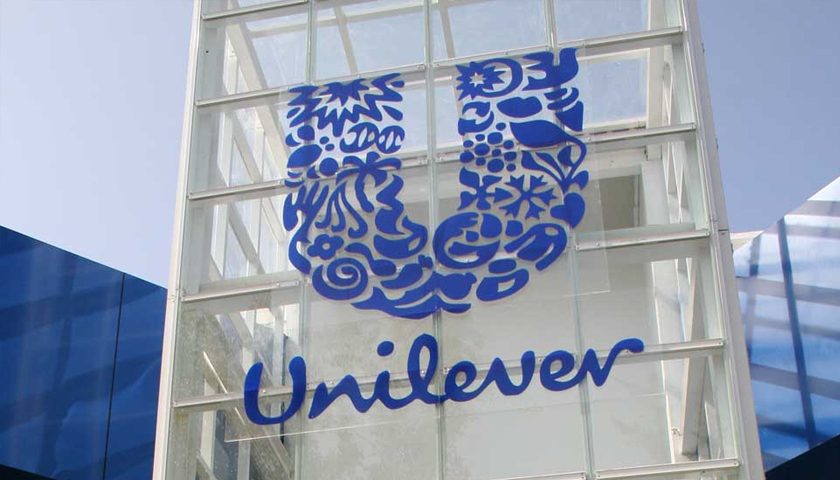Wall’s has partnered with Project Everyone to launch The Happiness Project. Their aim is to teach three million children a set of happiness habits by 2025, through lessons designed to deliver smiles beyond the classroom.
Wall’s has joined forces with happiness expert Richard Layard and Project Everyone to focus on a topic that is missing from many curriculums. Alongside reading, writing and arithmetic, the partners are working to add the subject of happiness to the regular timetable.
“Happiness is not something that is decided by only your genes or environment,” explains Lord Layard, editor of The World Happiness Report and author of ‘Happiness: Lessons in a new Science’. “Nurturing social relationships, connecting with your community, and looking after one’s mental health have all been proven drastically to improve one’s happiness levels,” he says.
“And, incidentally, they are all things that we that we can be taught to do.”
Creating happiness that lasts longer than an ice cream
“Our own brand research shows that happiness lies in social connections and communities,” adds Wall’s Global Lead, Barbara Scala.
“Eight in ten of its ice creams are eaten when people are connecting with others, and social connection has been proved to be one of the most significant drivers of happiness,” she explains.
“We know how important happiness is at Wall’s,” adds Unilever’s Chief Marketing Office for Ice Cream, Julien Barraux. “Our ice creams have made people happier throughout the world for over 100 years.”
“But we also want the happy feeling that our sticks provide to last longer than just an ice cream. We are committed to creating an unbroken chain of happiness, starting with our suppliers to award-winning programmes like Vanilla for Change, right the way through to our employees and to our consumers,” he adds.
How The Happiness Project came to be
“We realised that to build the happier communities of tomorrow, we needed to support children in finding greater happiness today,” adds Barbara. “Our mission through The Happiness Project (THP) is to work with educators to give children the tools to live happier and more connected lives.”
Through THP, educators are provided with 25 days of lesson plans and workshops that teach children simple wellbeing habits around social connection, physical health, creativity, generosity and gratitude.
“The focus is on collaborative learning activities, happiness projects and short engaging daily challenges that enable children to begin to talk more openly about their emotions,” Barbara says.
Students and teachers give THP lessons top marks
Lessons have already been piloted over a 12-month period with the help of 135,000 students throughout Indonesia, Pakistan, Turkey and China.
Additional feedback has also been received from students in Mexico, India and Brazil. The good news is THP is receiving top marks from all the schools involved – so far 85% of children say they feel happier after taking part in the programme.
And it’s not just the students reporting good results.
“One thing we weren’t anticipating is the impact on teachers,” says Barbara. “The lessons are providing a space for them to learn about their students and for students to learn more about them. And that has been really moving to hear.
“As a result of the impact our partners saw on the students in one class in Pakistan, for example, the teachers asked to roll out the programme to every student in the school,” she adds.
Early data from teachers shows that:
-
96% found value in THP modules reaching the children
-
83% said more than 80% of children enjoy THP classes
-
79% reported more than 80% of children practised kindness towards peers during THP classes
-
79% said more than 80% of children were able to share and express their feelings during THP classes.
Maria Esther Rodriguez is a teacher and educator from Mexico who taught THP’s happiness lessons to students as part of their return to the classroom after Covid.
“Coming back to school after a pandemic was a stressful process for both children and families,” she says. “And especially for teachers, since students still feared having contact with the outside world.”
“Being able to guide them through the transition of fear and uncertainty to an environment of cordiality, empathy and above all happiness made my classroom and my school a place to which the students wanted to come back,” she adds.
The modules are designed to teach children to use positive self-talk – so they develop a healthy relationship with themselves. “They helped students recognise that happiness does not depend on anyone, only on themselves,” Maria says.
“This led to daily reflections in sessions at the beginning of the day. And as a result, my 11–12 years old students became guides to younger pupils and even organised a Happiness Festival for them. Believe me, it was an event that was priceless,” she adds.
Celebrating International Day of Happiness
As a result of THP’s success, Wall’s and Project Everyone have chosen 20 March, International Day of Happiness, to announce the project’s further roll-out to bring similar smiles to schools in Germany, Sweden, Asia and Latin America.
“Wall’s would like International Day of Happiness to become a tentpole moment for the Happiness Project, a day marked day in calendars where children and young people celebrate social and emotional learning,” says Barbara.
“Schools are often at the heart of the community and the impact they have is wider than their student base. It reaches parents, siblings, teachers,” she adds.
“Our hope is that through their support of The Happiness Project, Wall’s will reach 3 million young people globally by 2025. And that with expert partners, our brand will help equip young people with techniques that enable them to grow up happy in themselves, to talk about their feelings and to have strong, healthy relationships with others,” she says.

